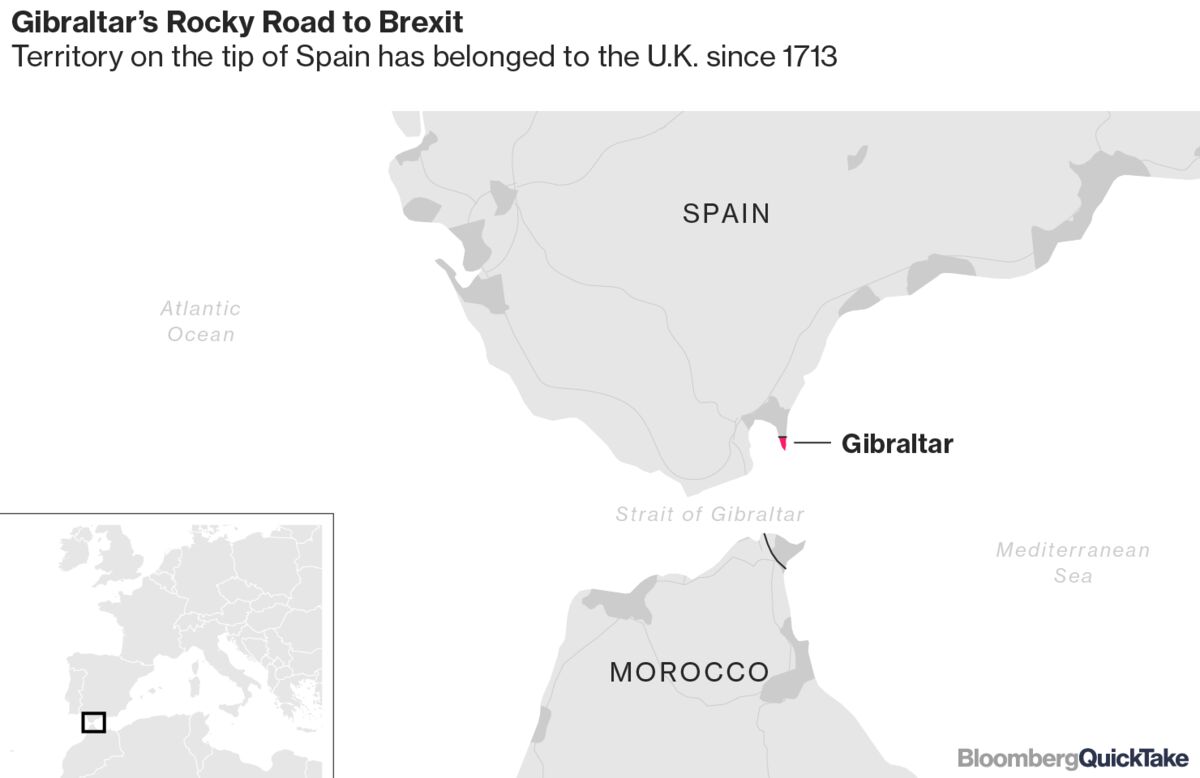
Spain and the UK struck a last-minute deal on Gibraltar that will facilitate entry into the territory and remove the threat of new border restrictions with the European Union once Britain leaves the bloc on January 1.
A preliminary agreement was reached that would help build “shared prosperity,” Spanish Foreign Minister Arancha Gonzalez Laya told reporters on Thursday.

Vehicles at the border crossing to Gibraltar from Spain on December 30th.
The territory will operate under Schengen terms without a passport, she said, adding that the final agreement is expected to enter into force within six months.
“The gate has been lifted,” Gonzalez Laya said. “It makes it possible to suppress controls between Spain and Gibraltar.”
Over a four-year period of implementation of the agreement, officials from the European border agency will assist Frontex with controls at the port and airport of Gibraltar, with Spain responsible for overseeing Schengen.
The Brexit trade agreement struck on December 24 did not include a settlement for the British Overseas Territory with a population of about 32,000. The lack of an agreement threatened more intensive passport controls, disrupting the flow of goods and the daily commute of thousands of workers.

“We have agreed on a political framework to form the basis of a separate treaty between the UK and the EU regarding Gibraltar,” British Foreign Secretary Dominic Raab said in a statement. “We will now send this to the European Commission to start negotiations on the formal treaty.”
He said the UK remained “steadfast” in its support of Gibraltar and that its sovereignty was guaranteed.
Fabian Picardo, the area’s prime minister, said the Gibraltarians “should have absolutely no concerns” that the deal could pave the way for the Spanish Guardia Civil police to eventually enforce border controls.
From the archive: a brief explanation of Gibraltar’s existential Brexit challenge
The deal marks a new chapter in the sometimes tense relationship between Spain and the UK over the small strategic enclave at the entrance to the Mediterranean. Many residents of the area, which has been under British control since 1713, vividly remember a 13-year blockade imposed by the Spanish dictator Francisco Franco that did not end until 1982.
Joint EU membership helped take the sting out of the dispute and allowed the area to flourish from tourism, financial services and online gambling. Among the approximately 15,000 people who cross the border for work every day, there are many Spaniards from an environment with a history of chronic unemployment.
“Almost at the last minute, the negotiations have been successfully concluded and the clock stops ticking,” Picardo said at a press conference. “This is serious politics, this is about the future of our children, the strength and growth of our nation.”
– With the assistance of Macarena Munoz Montijano
(Eighth paragraph updates with comments from UK officials on sovereignty)